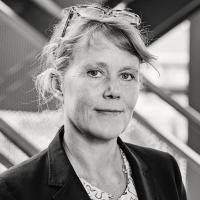Holocaust in the Periphery. Memory Politics in the Nordic Countries
The Swedish government led by Stefan Löfven has taken steps towards opening a Holocaust museum in Sweden. Sweden remained neutral during World War 2, and welcomed Jewish refugees – also from Denmark during the great escape in October 1943.
But what should a museum about the genocide of Europe’s Jewish population include in a country with no killing sites, with many survivors – a country that collaborated with Hitler’s Germany? How are we to commemorate and learn about the Holocaust in the twenty-first century at a time when the last witnesses are disappearing and the memory of the Holocaust is being challenged in Europe and USA?
These questions were debated among international experts at the conference ‘Holocaust Remembrance and Representation’ in Stockholm. The conference was part of the commissioned report ’Sveriges museum om Förintelsen’ that was presented to the Swedish government on April 15.
Among the participating experts was DIIS Senior Researcher Cecilie Felicia Stokholm Banke. In her contribution on memory politics in the Nordic countries she highlights the importance of including local perspectives.
DIIS Experts

